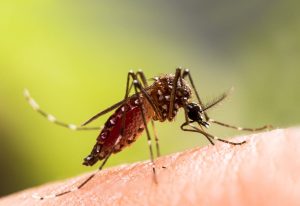
THE INTERNET has long been an unsafe place for women. Online harassment is more than just receiving malicious messages, rumors, and threats. Harassers use technology to attack their targets, sometimes even posing as them on social media and creating websites to sully their characters. They become trolls and cyberstalker, and even make false 911 calls to send police to their targets’ residences — a practice known as “swatting.” Forms of online harassment currently increasing in popularity include doxing — releasing victims’ personal information — and revenge porn — sharing images and videos online in which victims appear nude or in sexually intimate situations.
Online harassment is widely experienced, as evidenced by a 2014 Pew Research Center survey which found that 40% of internet users experienced it and 73% witnessed it. Of those who had experienced online harassment, 45% experienced severe forms such as physical threats and stalking.
Online harassment is perpetrated by strangers as well as people known to those experiencing it, and it is a common weapon used in intimate partner violence. It is also used to silence the voices of marginalized people who use online spaces to speak out, make connections, and engage with communities they build and join. The goal is to get targets to leave the internet, or to change or delete their content.
Leslie Jones Leaves Twitter, Then Returns
Comedian and actress Leslie Jones temporarily stopped using Twitter due to the staggering amounts of online harassment she experienced. Perpetrators voiced their displeasure with her being cast in the new Ghostbusters movie, and their misogyny and racism were evident in their attacks on her physical appearance. Many of the tweets compared her to gorillas, mirroring nineteenth-century racism in which black people were deemed not human and oftentimes compared to animals. Jones received tremendous support from her fans and the general public — who used #Love4LeslieJ to build community — and later returned to Twitter.
Gabby Douglas Experiences Another Round of Online Harassment
Gabby Douglas, an Olympic gold medalist, was targeted during the Olympics by people commenting on her hair, the decision to stand at attention during the national anthem rather than placing a hand over her heart, and sitting while other team members stood and cheered for Simone Biles and Aly Raisman. With mounting pressure to perform and win, she was forced to deal with accusations of jealousy, lack of respect for her country, not smiling enough, and speculations about her body — including suggestions that she altered her complexion and breasts.
This treatment of Gabby Douglas goes back to the 2012 Olympics in London when her hair — styled in that same way as every other member of the team — was the point of contention. The only difference between Douglas and the other team members was race. In Rio, joined by the ebullient Simone Biles, Douglas may have appeared more markedly subdued. Not only was she expected to perform on bars, beam, floor, stands, and podium, but she was also expected to perform personality for the comfort of viewers everywhere, especially in the USA. Douglas was visibly affected by the online harassment she experienced, and was continually asked about it by the media. She said she was hurt by the barrage of negativity, and was trying to stay off the internet.
Hashtag Support for Gabby Douglas
In a move that proved the power of community as evidenced by her own experience of hashtag support, Leslie Jones was quick to encourage her fans to show Douglas the same support by tweeting:
Yo I just heard Gabby getting attacked on her page show her the love you showed me #LOVE4GABBYUSA send to @gabrielledoug
— Leslie Jones (@Lesdoggg) August 15, 2016
Twitter users jumped on board, flooding Douglas’ feed with messages of love and kindness. This kind of action has become an alternative to directly responding to harassers. It is safer and more effective to support the person under attack, and report and block harassers on the platform they use.
Nine days after her call for support for Douglas, Jones sent her last tweet to date. The harassers were back at her, but this time with more cruelty. Hackers took over her website, posting nude photos, personal information, and a photo of Harambe, the silverback gorilla shot and killed at a Cincinnati zoo earlier this summer. Harassers are not only satisfied to annoy, frustrate, or embarrass, but seek to strip people of their dignity and humanity. Not only do they want to silence victims and make them feel invisible, they want to destroy people’s lives as well. As of this writing, Leslie Jones’ website is still not back up.
Combating Online Harassment
Online harassment will not just go away. The people who sit at computers, finding ways to spread hate like a virus, install fear, and code discomfort into people’s online presence will not stop on their own. They have to be reported, and we have to push for major entities like Facebook and Twitter to take reports of online abuse seriously. Even when they are responsive — like Twitter was when it banned Milo Yiannopoulos, a known racist online harasser — other harassers and sympathizers force us to make the distinction between freedom and responsibility on one hand, and the government and private entities on the other. Making the internet a safer place is the responsibility of platforms that create and manage spaces, making sure that people can safely exercise their freedom of speech in those spaces.
When institutions tolerate sustained online bullying, abuse, and harassment, they become complicit in it. In the end, it’s social media executives, advertisers, and investors who need to make it publicly clear that addressing abuse is a priority that they will invest in and structurally adapt to.
If you experience or witness online harassment, you can use HeartMob — a platform aimed at ending online harassment, powered by Hollaback! — to report it, request help, and offer support to others. Users have the option to make their reports private or public as they catalogue incidents, and decide what they would like supporters to do. A key feature of the platform is the ability to catalogue harassment on someone else’s behalf, sparing them the trauma of going through hateful messages. The HeartMob website also has a wealth of resources, including Social Media Safety Guides and a list of supportive organizations.
The internet makes it easy for people criticize and victimize others, but it can also be used as a tool for lending support to one another. Whether by use of a hashtag, helping to report harassers, calling on platforms like Facebook and Twitter to take swift, strong action against harassers, or using platforms like HeartMob for both reports and support, everyone has the power to fight online harassment.
For as long as people dare to inhabit online spaces and terms and conditions remain insufficient to protect users, this call and response will be relevant:
When our online presence is under attack, what do we do?
Stand up, fight back!

-300x200.jpeg)









-300x241.jpeg)




